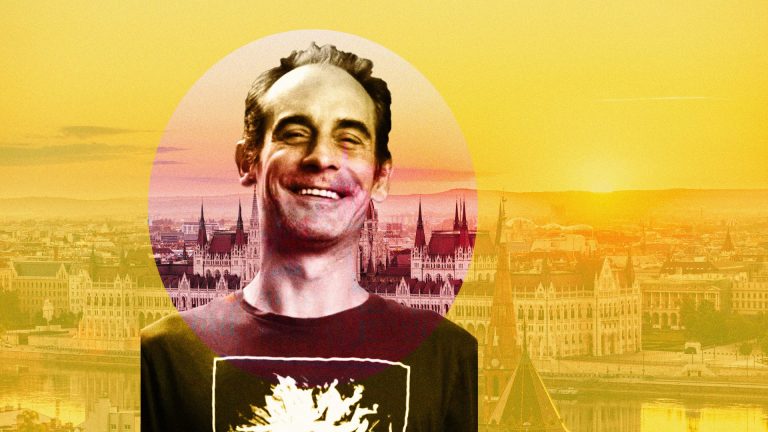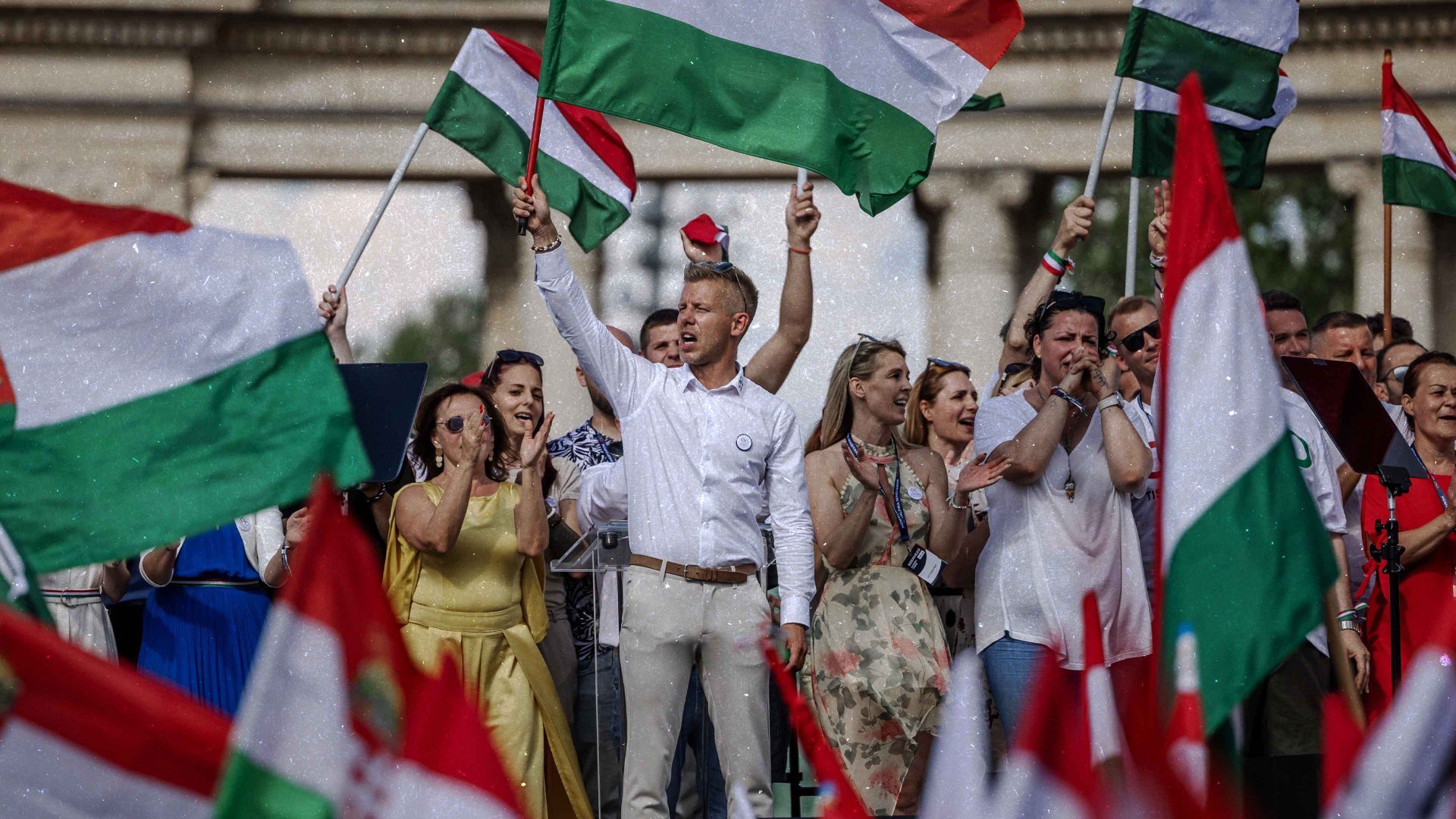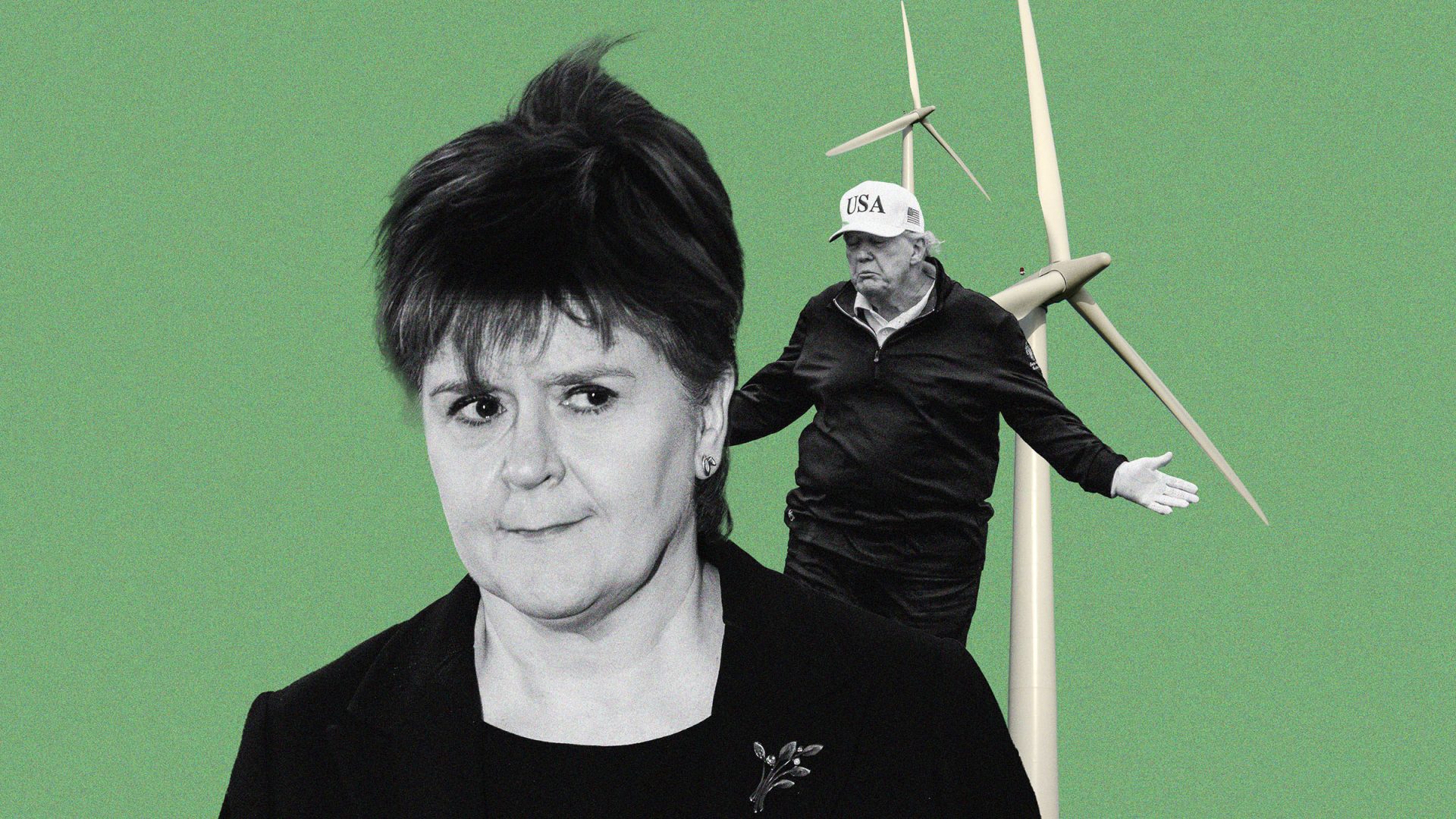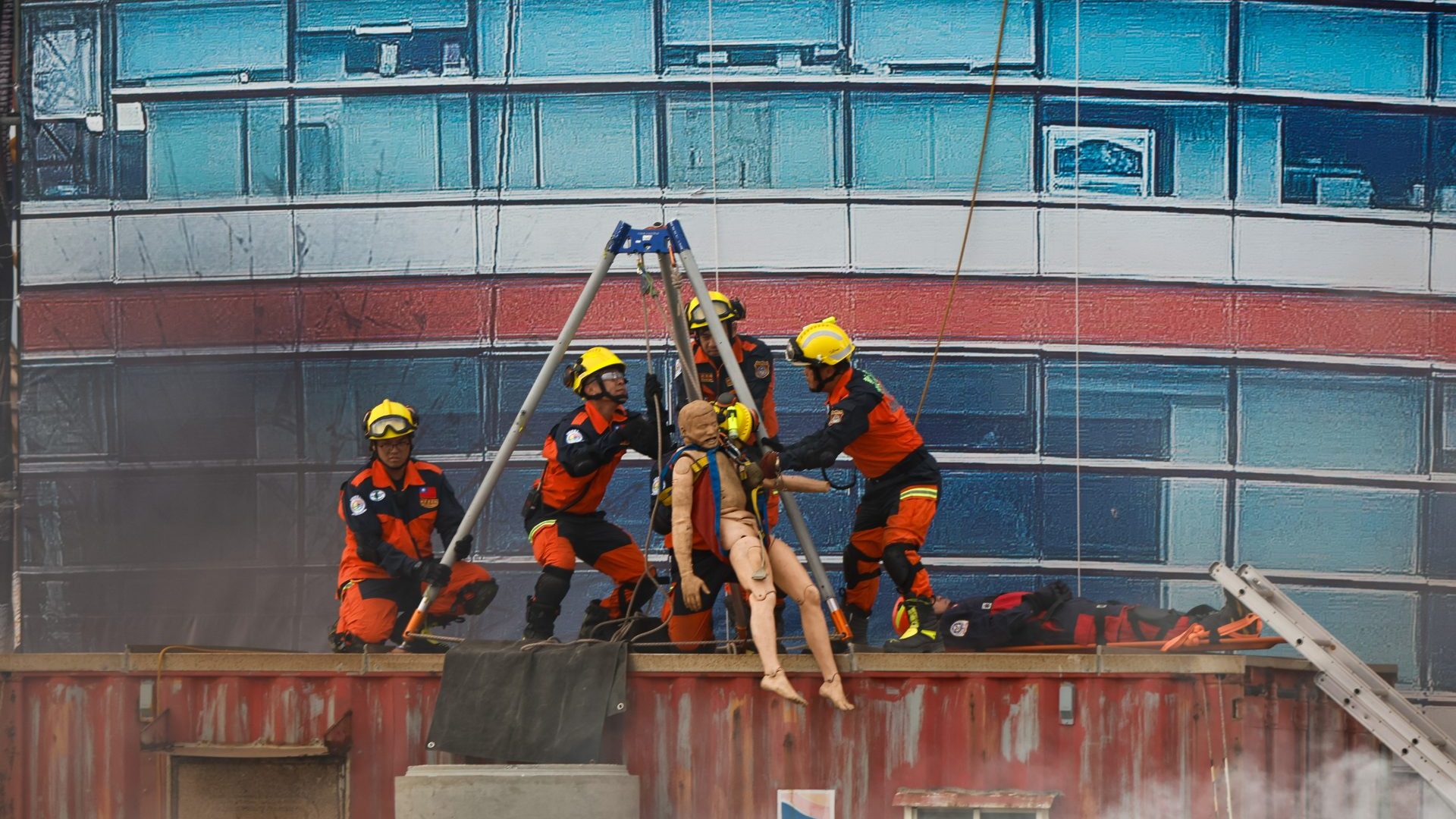Thick slices of white bread dripping with pork tallow, topped with red onions and paprika powder. Plates of cheese scones and thin crepes with jam filling. Jugs of lemonade and raspberry squash.
In rural Hungary, these delicacies are telltale signs of the community coming together. On a hot July morning in Nagyoroszi, a 2,000-soul village in the north, a hundred people gather outside a pub for the arrival of a journeyman, who is on an adventure around the country.
In the past week alone, he has travelled by canoe, scooter, horse-drawn carriage, and even a tractor. This time, a 1962 Lincoln Continental convertible rolls into the parking lot, driven by a handsome man in his 40s wearing a linen shirt, Ray-Bans and a beret.
He is Péter Magyar, the strongest challenger yet to Viktor Orbán’s reign. Once a lawyer and business executive in government circles, he came out against the regime in February 2024. Now the polls suggest that his Tisza Party has a 15-point lead over Orbán’s Fidesz. With the government’s failing economic policies, crumbling social services and rampant corruption, Magyar’s ascent seems to accelerate each day that Orbán spends in office.
But his victory in next year’s general election is not guaranteed. In an electoral system tailor-made by and for Fidesz, not only does he need popular support, he must also win in the majority of the 106 seats around the country. In 2022, Orbán’s MPs secured 87 of these – outside Budapest, he won every seat except two.
So this summer, Magyar is meeting people in Fidesz strongholds in a campaign titled “Around Hungary in Eighty Days” – an effort to change hearts in regions where the primary source of information is Orbán’s state propaganda. At the last election, Fidesz won some constituencies by nearly 40 points.
While Orbán continues to run a top-down communications campaign to keep his camp together, Magyar has been building from the bottom up: his supporters have organised hundreds of local political chapters called “Tisza islands” across the country.
“We’re slowly growing in numbers, but people are still afraid to join us,” says Tímea Hegyaljai, a mother in her 40s from a nearby town. In rural Hungary, everyone knows that opportunities come at the cost of loyalty to the regime.
Yet as the Lincoln’s engine stops rumbling, there’s no fear in the crowd.
“It’s the model that John F Kennedy was shot in,” says Magyar as he gets out and slowly makes his way to the pub, stopping for selfies with people of all ages.
Suggested Reading

Here’s how Orbán could be ousted
He sits down among his supporters, quickly summarises the first week of his journey, then recites the cornerstones of Tisza’s manifesto. He promises to boost the economy by ending corruption, acquiring EU funds currently frozen for rule-of-law concerns, and reclaiming assets embezzled by Orbán’s cronies. He explains how he would strengthen Hungary’s healthcare system, reveals plans to build social housing, talks about investing in railways and lays out a plan for education reform.
But Magyar impresses locals the most because he listens: he asks people what problems they face in their everyday lives and then opens the floor to them. People complain about lorries running through the village that make noise and damage buildings because the planned ring road was never built. An old man hands him a piece of paper bearing his “ideas for economic reforms”. A woman with a chronic illness describes her tragic experience with the healthcare system. Magyar doesn’t have answers to everything, but people cheer anyway: it’s the first time they’ve seen a politician who genuinely cares about them.
Two hours later, Magyar says goodbye and hits the road to get to his next destination in Szob, a small town 45 minutes away on the Danube. His staff put a wireless microphone on his shirt and a cameraman streams the drive on Facebook.
He arrives half an hour behind schedule. “I apologise for the delay. You know our programme: economy, healthcare, housing, education. Let’s get on with the questions,” he says to a crowd of roughly 100 gathered by the river. Once again, people queue to share their problems and cheer whatever Magyar has to say about them.
I walk back to his car with him and ask how he plans to flip Orbán’s safe seats. He paraphrases the words of an old coach of Ferencváros Football Club, telling me: “When we’re down 1-0, we’ll attack. When it’s 1-1, we’ll attack. When we take the lead, we’ll keep attacking and win the game.”
Magyar turns on the engine and sets off to meet more of his supporters. It’s day eight of his 80-day journey.
Iván L Nagy is a Hungarian political journalist and podcaster



